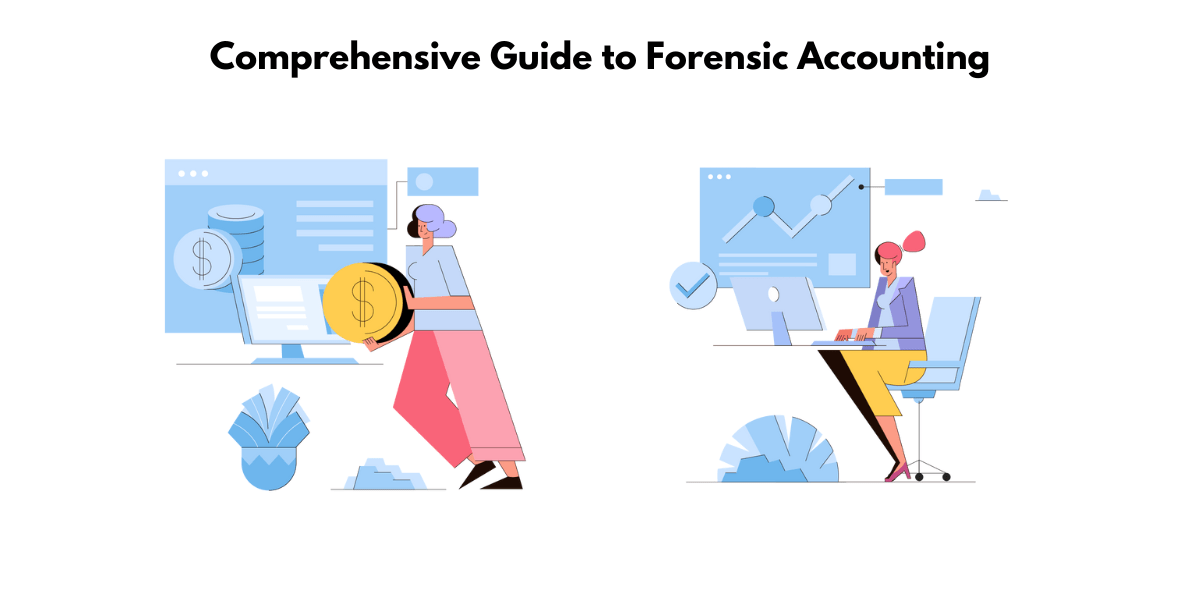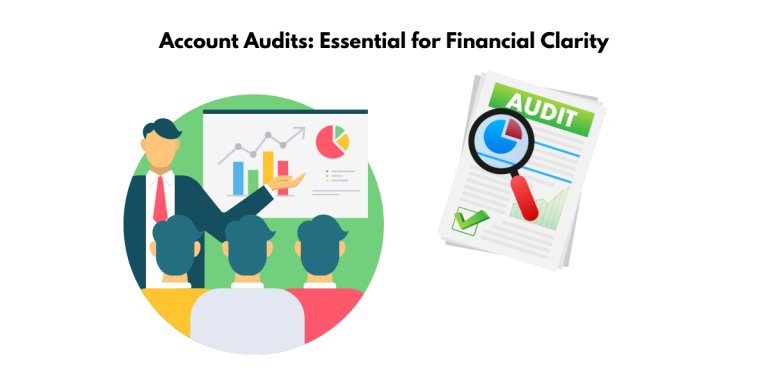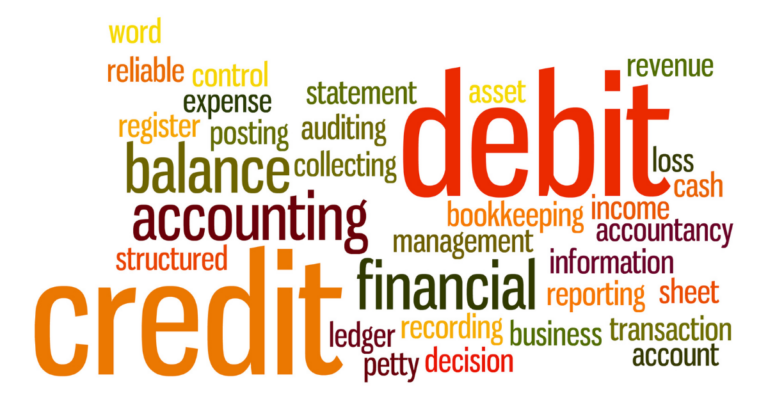A Comprehensive Guide to Forensic Accounting: Definition, services, and more
A Comprehensive Guide to Forensic Accounting
Forensic accounting is the application of specialized investigation and accounting techniques to collect, analyze and present evidence of a potential financial crime.
The term ‘forensic’ is suitable for use in a court of law, and this aspect differentiates forensic accounting from other types of corporate investigations.
Solicitors or barristers often employ forensic accountants as expert witnesses in civil or criminal cases where their specialist skills are required to provide an opinion on financial matters.
This guide provides an overview of forensic definition, and the role of forensic accounting in detecting, investigating, and preventing financial crime.

What is forensic accounting?
Forensic accounting is the process of reconstructing a business’ financial history to determine whether it has been fraudulent. This can be done by analyzing the company’s financial records, including accounts receivable, accounts payable, and inventory.
How does forensic accounting work?
The process of forensic accounting involves examining and reconstructing financial transactions to determine their legitimacy. It can be used to investigate financial crimes such as fraud or money laundering and requires careful analysis of financial records. Forensic accountants use various techniques to identify anomalies in the data that may be indicative of criminal activity, such as quantifying the data or analyzing personal characteristics related to the individuals involved. Additionally, they may employ analytical methods like Benford’s law which allows them to predict patterns in data that may be predictive of misconduct. The accuracy and success of a forensic accounting project will depend on accurate data collection and careful analysis by qualified professionals.
What does a forensic accountant do?
If you’re like most people, the term “forensic accountant” probably conjures up images of someone who works for the FBI or another law enforcement agency. And while it’s true that forensic accountants often work with government agencies, they also work in a variety of other industries.
So what exactly does a forensic accountant do? In short, they use their accounting and investigative skills to help solve crimes and uncover fraud. But there’s a lot more to it than that.
Take a closer look at what forensic accountants do and how they can help you.
Auditing and investigating financial statements
The main purpose of a forensic accountant is to check books of accounts against Generally Accepted Accounting Principles (GAAP) to detect illegal activity and fraud. Companies may appoint forensic accountants as part of their regular audit process, or they may be called upon when there is suspicion of fraud. They use a predefined process to review accounts and look for outliers and specific patterns, requiring accounting knowledge and skills beyond basic accounting, such as criminalistics and advanced data analytics.
Identifying potential fraud and money laundering activities
A forensic accountant needs to be able to identify potential fraud and money laundering activities to protect the business’s financial and legal interests. A forensic accountant must possess a strong knowledge of legal proceedings and accounting procedures to properly assess the situation, as well as have an understanding of computer applications when necessary. By identifying potential signs of fraud or money laundering, businesses can prevent financial theft, securities fraud, bankruptcy, defaulting on debt, economic damages due to M&A (mergers & acquisitions), tax evasion/fraud, privacy information loss, or even divorce proceedings.
Analyzing financial records
Analyzing financial records is important in forensic accounting to uncover any fraudulent or illegal activities that the numbers may hide. Forensic accountants use their attention to detail, interpersonal communication skills, and objectivity to identify discrepancies and determine the accuracy of those records. Understanding these records helps forensic accountants build a strong case for criminal or civil proceedings.

Investigating financial crimes
A forensic accountant has many important duties. These include investigating economic and financial crimes, uncovering fraud and other illegal activities, providing expert testimony, and identifying potential sources of income or assets. They must also be able to analyze complex financial data to determine patterns of activity that may indicate improper practices. Additionally, they must understand the laws governing financial transactions to advise legal professionals on those matters. Finally, they will often partner with law enforcement agencies to detect fraudulent activity such as money laundering or identity theft.
Preparing reports and testifying in court
The significance of preparing reports and testifying in court for a forensic accountant is immense. As an expert witness, it is essential that the forensic accountant can accurately provide accurate financial data and analysis. By preparing reports and testifying in court, they can give their account with clarity and accuracy, which can have a massive impact on the outcome of a case. Furthermore, knowing financial systems and procedures and strong written and verbal communication skills will help them provide the most effective testimony possible. The ability to analyze data, investigate damages, trace funds, etc., all help support any claims made by the individual or company during legal proceedings.
Advising on legal and regulatory compliance
A forensic accountant is vital in advising on legal and regulatory compliance. They are responsible for monitoring financial records and ensuring that the firm’s assets are protected from potential losses. Furthermore, they can advise firms concerning their transactions and other activities to ensure that all actions meet applicable laws and regulations.
Providing consulting services to businesses
Forensic accountants can provide a wide range of consulting services to businesses, including risk management, reviews of financial records, advice on navigating regulatory inquiries, testimony in court proceedings, and examinations into fraud or damages. They are also experienced in valuations and large projects. Additionally, they may work on a contract or permanent basis and typically charge lower fees than traditional accounting firms due to their efficient communication skills and lack of conflict with businesses.
Assisting in contract negotiations
A forensic accountant plays an important role in contract negotiations by providing information about past performance and financial data to help ensure that all parties adhere to the agreement’s terms. They can also provide invaluable insight into complex financial investigations, which can be used to negotiate a better deal for the company.
Assessing damages in civil litigation
A forensic accountant is a trained professional who provides evidence to quantify damages suffered by parties involved in a legal dispute, investigate criminal activity, and examine and interpret legal facts and evidence. Forensic accountants use their skills and expertise to assess financial information to resolve disputes or uncover financial fraud. They know accounting principles, auditing procedures, tax laws, corporate governance rules, ethical codes of conduct, investigative techniques, computer forensics tools, and other specialized topics related to their field. Forensic accountants help identify discrepancies in financial records that may point to fraudulent activities or other illegal behavior. They also provide litigation support services, such as analyzing documents for accuracy and relevance during the discovery process of civil litigation proceedings. Finally, they can be called upon to assist with dispute resolution matters such as mediation or arbitration.
Assisting in asset tracing and recovery
Asset tracing is an important part of forensic accounting, as it involves locating and identifying assets that may have gone missing or been misappropriated. Forensic accountants use various methods to trace these assets, including researching contracts and royalty agreements for fraud, utilizing computer software and financial records to investigate insurance claims or suspected fraud, or providing verbal confirmation of their findings during trial testimony. By tracing assets, forensic accountants can provide a comprehensive report that may include testimony from themselves or others concerning the whereabouts of specific funds or assets.

What are the benefits of using a forensic accountant?
A forensic accountant is a type of accountant that uses their skills to investigate financial crimes. This can include fraud and embezzlement, money laundering, and tax evasion. Forensic accountants use their knowledge of accounting, finance, and the law to gather evidence and build cases against those accused of financial crimes.
There are many benefits to using a forensic accountant. They can help you recover lost funds, track down assets hidden by criminals, and even end ongoing criminal activity. In addition, forensic accountants can provide expert testimony in court and help to convict those guilty of financial crimes.
Provide evidence for court cases
The use of forensic accountants in court cases can be invaluable. They can provide evidence that may help prove a case and offer innovative and creative solutions based on their experience with different cases. Additionally, the limited conflict issue means that most forensic accounting firms are highly competitive in accepting engagements.
Detect and deter financial crime
Forensic accountants play an important role in detecting and deterring financial crime by using their skills to help organizations manage risk and reduce the chances of fraud. They investigate financial crimes, examine questionable financial data, and aid in civil and criminal investigations. With the growing field of technology and complex financial regulations, forensic accountants are increasingly valuable for their specialized knowledge.
Study financial documents for accuracy
Accuracy is essential for forensic accounting because inaccurate financial documents can lead to legal issues. Forensic accountants need to ensure that their financial documents are up-to-date and accurate to prevent potential problems. Additionally, utilizing tools such as SQL, dashboards, and data visualization can help improve the accuracy of financial documents used in forensic accounting. Finally, courses from organizations like FMVA offer electives that focus on leveraging buyouts and financial modeling to improve accuracy further when performing forensic accounting services.
Analyze financial documents for fraud
The significance of analyzing financial documents for fraud cannot be overstated, as it is an essential part of detecting and preventing fraudulent activities. Forensic accountants use a range of economic theories and business information to inspect financial documents to identify any indications of illegal activity. Gathering and assessing the necessary data from all affected parties is the first step in this process, which can then lead to concluding the findings. A thorough analysis of these financial documents can also help uncover schemes used by individuals or organizations to gain an unfair advantage within a business setting.
Identify and recover misappropriated funds
One of the benefits of using an account forensic is that they can help to track down financial wrongdoing, identify assets that have been inappropriately taken or hidden, and determine the value of assets that have been stolen. Furthermore, they can help businesses investigate and prevent fraud and identify tax evasion and other financial crimes. Finally, understanding a person’s past financial data can reduce banks’ tax liabilities and provide insight into potential securities fraud cases.

Investigate sources of lost funds
Someone might want to use a forensic accountant to investigate sources of lost funds if they suspect that fraud has occurred or if there is any suspicion of misappropriation of funds. Forensic accountants can use their expertise and investigative techniques to uncover the source and amount of lost money, which can help prevent future losses. Additionally, this type of investigation can also be useful in assisting in the design and implementation of internal controls for businesses. With global fraud losses estimated at 5 trillion annually, the need for reliable forensic accounting services is on the rise.
Analyze financial data for trends
One of the benefits of using a forensic accountant is that it provides detailed research and analysis of financial information. This type of analysis can help investigate potential fraud and other financial irregularities and assist in litigation. Forensic accountants also use advanced technological tools to ensure accuracy in their work.
Identify and assess risk
The role of a forensic accountant in identifying and assessing risk is to conduct independent reviews of financial records, carry out internal assessments for clients, identify and assess risk concerning white-collar crimes, have knowledge of accounting procedures, financial statement fraud, and legal system procedures, as well as using computer applications to gather intelligence and assess risks.
Provide expert testimony in court
Expert testimony is an important component of court proceedings, as it allows jurors to gain insight into complex technical concepts that they may not understand on their own. An expert witness can help the jury better comprehend the issue in question and make a more informed decision by providing insight and clarity. Additionally, expert testimony can be used in depositions to provide similar explanations for witnesses.
Analyze accounting records for compliance with laws and regulations
The role of a forensic accountant is to investigate financial crimes and provide critical evidence in civil proceedings. They work closely with law enforcement and lawyers during investigations and are often called upon as expert witnesses in court trials. Forensic accountants must know GAAP standards, best practices for financial auditing records, tax law, and financial reporting requirements, and the ability to adapt to different situations. They use their skills to help businesses understand and manage their financial information, identify irregularities or fraud activities within the accounts system, and make strategic decisions about business finances.
How can organizations use forensic accounting to their advantage?
Forensic accounting uses accounting principles and techniques to investigate fraud or financial misconduct. It can be used by organizations to detect and prevent fraudulent activity, as well as to support criminal prosecutions. Organizations can use forensic accounting in many ways, including the following:
Organizations can use forensic accounting to detect and prevent fraud and financial misconduct
Organizations can benefit from forensic accounting by detecting and preventing fraud before it happens, collecting evidence to use in a court of law, discovering who committed the crime, how they did it, and where the money went, and seeking restitution or strengthening internal controls. Forensic accountants use economic theories, business information, financial reporting systems, auditing standards and procedures, data management & electronic discovery techniques for fraud detection and evidence gathering to provide these services. Providing expert testimony also adds value when using a forensic accountant.
Forensic accounting can be used to uncover and investigate suspicious financial activities
Forensic accounting is a type of accounting that investigates financial information for potential evidence of crimes. Through legal skills, forensic accountants can determine if a financial activity is illegal. Forensic accounting encompasses providing litigation support and investigative accounting services to uncover suspicious financial activities such as money laundering, fraud, and tax evasion. Forensic accountants provide the court with the necessary information to discuss and debate any situation they may be presented with.

Forensic accounting can be used to analyze financial documents and records to identify discrepancies or irregularities
Forensic accounting is an investigative technique used by organizations to identify financial fraud and other criminal activities. It involves using quantitative and qualitative methods such as data analytics, Benford law, predictive modeling, and legal skills to detect irregularities or patterns in financial records that may indicate misconduct. Forensic accountants then present their findings in court to help resolve disputes or prosecute criminal activity.
Forensic accounting can be used to investigate and resolve complex disputes, such as royalty payments or product pricing
Forensic accounting is examining and interpreting legal facts and evidence to uncover hidden assets, settle disputes, investigate criminal activity, or quantify the damage suffered by parties involved in a legal dispute. Forensic accountants often testify as experts in court proceedings and are divided into three aspects: litigation support, investigation, and dispute resolution. By utilizing their specialized knowledge of accounting principles and financial laws and regulations, forensic accountants can provide information that can aid parties involved in a legal dispute.
Forensic accounting can be used to uncover financial issues and risks, such as potential over-billing or misappropriation of funds
Forensic accounting is a type of accounting that investigates financial information for potential evidence of crimes. This form of accounting uses the skills of auditing, accounting, and investigative work to help determine if a person or organization has committed financial misconduct. Forensic accountants can uncover assets and liabilities and the economic consequences of breaches. Other common applications of forensic accounting include providing litigation support and investigation services related to construction claims, product liability claims, trademark infringements, or patent infringements.
Forensic accounting can be used to review and analyze financial statements for accuracy, completeness, and potential discrepancies
Forensic accounting is a type of accounting that investigates financial information for potential evidence of crimes. It uses an understanding of economic theories, business information, financial reporting systems, accounting and auditing standards and procedures, data management & electronic discovery, data analysis techniques for fraud detection, and investigative techniques to detect fraud. Forensic accountants use legal skills to determine if a financial activity is illegal and provide litigation support and investigative accounting services. Organizations can utilize forensic accountants to track their financial performance, identify fraudulent activities, or prevent fraud before it happens by conducting management reviews and audits.
Forensic accounting can be used to provide expert testimony in court cases related to financial matters
The significance of forensic accounting in court cases is that it provides evidence to support discussion, debate, and dispute resolution. Forensic accountants use their accounting, auditing, and investigative skills to investigate financial information to uncover evidence of crimes or financial misconduct. This evidence can then be used to prove the innocence or guilt of a person or company during court proceedings.

FAQs
Here are some of the most frequently asked questions about forensic accounting:
What is the difference between a CPA and a forensic accountant?
A CPA is a certified public accountant, the most common accounting professional in the United States. A forensic accountant specializes in reconstructing financial data to determine whether or not it is accurate and whether or not there has been any fraudulent activity.
How much does a forensic accountant make?
A forensic accountant is a specialized accountant who uses investigative techniques to analyze financial records for potential criminal activity, fraud, or other irregularities. A forensic accountant salary is typically an average of $80,000 annually and can work in finance, insurance, law enforcement, and government agencies. The average salary for a forensic accountant is $76,169. Forensic accountants provide valuable services to help organizations uncover evidence of suspicious activities and mitigate the associated risks.
What are the main types of fraud that forensic accounting can investigate?
Forensic accounting can investigate various criminal activities, including financial theft, securities fraud, M&A-related lawsuits, tax evasion, and more. Forensic accountants use various techniques to identify fraud and can analyze data to look for abnormalities or patterns predictive of misconduct. They also use qualitative and quantitative approaches in their investigations, focusing on personal characteristics and financial data. This helps them narrow down suspect lists and detect fraudulent activity that may have caused damage.
How do you hire a forensic accountant?
When hiring a forensic accountant, employers should look for someone with experience and qualifications. They should search websites and job boards specifically for this type of position. The ideal candidate should hold a bachelor’s degree in accounting or another related field, have a CPA license, and be certified by the American Board of Forensic Accounting. Additionally, they must know various methods to uncover hidden assets. Employers must ensure that their forensic accountant meets all these requirements before they hire them.
What is the certified forensic accountant credential?
The Certified Fraud Examiner (CFE) credential is a specialized forensic accounting certificate provided by the Association of Certified Fraud Examiners (ACFE). It provides them with knowledge and skills related to fraud investigation and can lead to a 17% increase in income compared to non-CFEs. To acquire this credential, forensic accountants must have an appropriate degree in accounting, finance, or economics; be certified public accountants (CPAs); have relevant work experience, and pass a series of CFE exams. The CFE certification provides credibility and job prospects for forensic accountants.
- Smart Tax: How to Use Smart Tax Calculator and Federal Income Tax Calculator - December 5, 2023
- Collateralization: 5 FACTS you should know about collateralization - May 1, 2023
- A Comprehensive Guide to Forensic Accounting: Definition, services, and more - December 15, 2022






